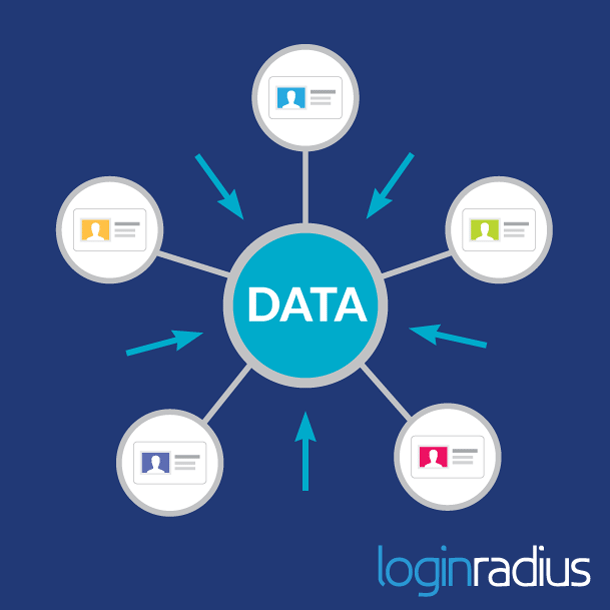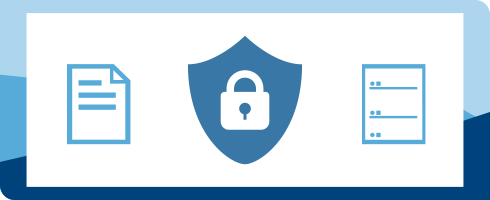This just in: concerns about data security aren’t just for the big corporations anymore. Consumers are becoming increasingly aware of how their privacy is handled, and are expecting companies of all sizes to be able to secure their data appropriately.

And why shouldn’t they?
The digital age has promised them a world at their fingertips, but doesn’t always follow through with the protection of their information. In fact, the Information Commissioner’s Office (ICO) warns businesses that consumers are concerned that their data is not secure in their hands.
77% of responders in their Annual Track Survey reported that they are “very concerned that organisations are not collecting and keeping personal details secure,” and another 67% believe companies are “requesting unnecessary data or collecting details they do not need.”
Ultimately, how customer data is protected and adherence to security compliances by businesses can be the deciding factor for people choosing where to spend their money. This is a big deal, and will continue to be a big deal, to businesses of all sizes.
Customer data is sensitive in nature, and people have the right to know how strongly their data is being protected—especially with hackers looming in the darkness of the interwebs (enter, Ashley Madison Hack).
Without getting side-tracked by all of the awful backlash related to the Ashley Madison debacle, this post will highlight the importance of centralizing customer profile data, and how doing so contributes to increased data security overall—granting you and your customers peace of mind.
So, Why Centralize?
Data is the number one asset for your company. When gathered and normalized correctly, it can provide an overview of who exactly you market to, are selling to, and who you’re serving. But what happens when the data is collected through multiple channels or websites? How useless can it become?
It’s very simple actually, when the data is separated it loses value, and when it’s in one place, it can provide targeted insight into your market. There are several more benefits to centralizing your customers’ data, including increased data security, the elimination of data silos, and it ultimately creates a unified view of your customer. This unified view is what gives you the best stance in your industry to effectively market to your exact target based on their demographics, needs, and behavior.
Increased Data Security & Integrity
So, the data integrity increases significantly when you centralize because data redundancies are eliminated, and that fragmented view of your customer that we were just talking about disappears as well. You can trust the data to be more accurate once it’s centralized because when the information all goes to one place, you don’t have to worry about it being replicated incorrectly.
If you’ve heard it once, you’ve heard it a thousand times, you’ve got to take your data to the cloud. Cloud-based data centralization is how you can achieve top-notch security and connectivity. Think about it, if your in-house physical data server system fails, that’s it. Kaput. It’s over.
With cloud data storage, there are automatic back-ups taking place, every day, every hour, keeping your data protected at the highest level. It’s also a good idea to have your customer profile data managed with cloud infrastructure because identity management contains multi-layered security measures, which are difficult and time-consuming to implement in-house.
We know, we know, you have awesome developers. But is it worth risking the security of your customer profile data? Don’t ask Ashley Madison.
Eliminates Data Silos
Next up are data silos. When your company progressively gathers data, it can come in many forms and can be transferred through various third party solutions. Using multiple systems or websites across departments creates multiple streams that become relatively useless in their separated state.
This type of data collection creates data silos, which directly affects your core business in several ways. You can’t access all relevant data in one place, you waste time and resources trying to combine identities, and you waste even more time trying to amend data inaccuracies.
Centralizing the collected data means bye-bye silos, hello usable customer profile data.
Unified Customer View
The Big Data boom, depending on who you ask, created several distinct “issues” in today’s digital market. First, digital media professionals and marketers are now gathering more accurate data on their current and future customers than ever before, and 77% of those digital professionals report an increase in data collection over the past year.
Secondly, even though the data collection has increased, creating individual customer profiles and linking data overall has proven to be a problem. When the data is centralized it becomes more secure, data silos are kicked to the curb, and businesses finally have a single, unfragmented view of their target customer.
What we’re trying to say is…
Your potential customers are worried about their data security, and your ability to protect them and handle it could be deciding factor in their decision to become your customer. Data security and centralization are components of a larger issue surrounding personal information and privacy, and your business needs to be prepared for the growing discussion around data protection services.

